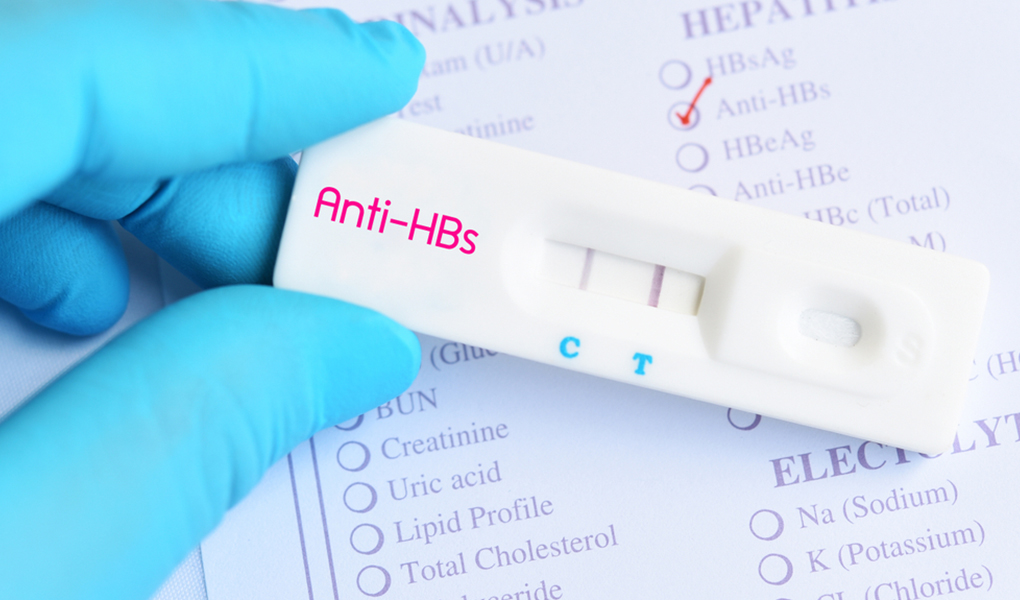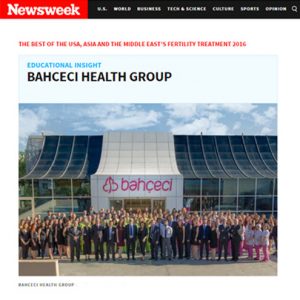Hepatitis B or in another word jaundice is a type of virus sourced, liver disease. Hepatitis B virus (HBV) can transmit via blood, sexual intercourse or it can pass onto baby in mothers’ womb it can develop as acute or chronic. Once hepatitis transmits into your body, within 6 weeks to 6 months, you may experience symptoms like influenza and may not show any other symptoms. Laboratory test shows, if the HBsAG is positive, it means the surface antigen of Hepatitis B, indicates that the person is infected, while Anti-HBS indicates that the person has developed immunity to the disease.
If the person had Hepatitis B virus transmitted before or if the person was vaccinated is shown by Anti-HBS positive levels determined by the laboratory tests.
What is Anti-HBS?
Hepatitis B virus causing inflammatory infection in the liver; It is transmitted from person to person through sexual intercourse, contact with body fluids, non-sterile body care products and blood. Hepatitis B virus, which can be transmitted from mother to fetus during pregnancy, is a life-threatening disease that disrupts liver functionality. Anti-RLS is a laboratory test to determine whether the body of the person thought to be infected with Hepatitis B virus develops protective protein against Hepatitis B surface antigen. In simple terms, Anti RLS can also be defined as a test to determine whether a person is immune to hepatitis B virus. When the person encounters the hepatitis B virus, the immune system tries to detect and destroy the virus. To do this, it produces antibodies against the antigen identified as HBsAG on the surface of the Hepatitis B virus. The anti-HBC IGG positive value indicates that life-long immunity is achieved by the antibodies produced after the first antibodies produced after exposure to the Hepatitis B virus.
The Anti HBC IGG value, which does not give information about the recovery or chronicity of the disease, therefore has no meaning alone. These antibodies, which are developed by the body and form a defence mechanism, are called Anti-HBS. Anti-HBA is a product of the body’s fight against Hepatitis B virus and heralds that the infection is completely cleared. These antibodies also ensure permanent immunity in the body. The body is then ready to produce antibodies against antigens present on the surface of the virus when it encounters the Hepatitis B virus. In other words, the disease is destroyed by the body before it causes infection. By measuring the level of these antibodies in the body in the laboratory, the Anti-RLS value results in either positive or negative.
The purpose of the Anti-HBS test is to determine whether if the person has been previously infected with or vaccinated for the hepatitis B virus. In some cases, such as incomplete vaccination, the antibody level may be regressed, so this test can be used to determine whether the vaccine should be repeated. For anti-HBS, the physician collects blood from the patient and sends it to the laboratory for analysis and evaluates it together with the hepatitis test result.
What Does Anti HBS Positive Mean?
Anti-HBS is a type of laboratory test that is performed on people who are thought to have hepatitis B. The test, which can be used to determine whether the person has already been immunized by exposure to Hepatitis B virus or by vaccination, can also be used to determine whether the virus has been destroyed by the body and acquired immunity for life. The anti-HBS test is also used to check whether the vaccine is retained, or in other words, whether the body produces antibodies against HBsAG, which is defined as the surface antigen of the Hepatitis B virus. Anti-RLS test is also performed to determine whether the person is immune to this virus before the hepatitis B vaccine is administered.
The question of “what is anti-HBS positive*” can be answered as follows; the result of the laboratory test performed via blood test method known as Elisa is that the anti-HBS value is positive, indicates that the person is immune to hepatitis B virus. The anti-HBS positive value, which indicates that the person is protected against hepatitis B virus for life, may be developed by vaccination method or due to infection. Although the anti-HBS value is higher than 5 mIU/ml, it is accepted as positive, but the value between 5 to 12 mIU/ml after vaccination shows that the vaccine does not retain. Values above 12 mIU/ml indicate that the vaccine is retained and fully immunized. The anti-RLS test does not determine whether the immunity was acquired after hepatitis B virus exposure or after vaccination. To understand this, the Anti Hepatitis Core test, known as Anti HBC, is required.
What Does Anti HBS Positive Mean?
When the anti-HBS result is obtained by laboratory test, a negative value means that there is no immunity against Hepatitis B virus in the body. The frequently asked question is “What does anti-HBS negative mean?”, can be answered in this way. It is quite normal for people who have not had hepatitis B vaccine to have anti-HBS. However, the fact that the negative Anti-HBS result does not mean that the person is not suffering from hepatitis B and is not affected by infection. In order to understand this condition, the level of HBsAg known as Hepatitis B surface antigen test should be checked. The negative value obtained by the anti-HBS level at 5.0 mIU/ml indicates that the body does not produce antibodies against the antigen identified as HBsAG on the surface of the Hepatitis B virus in the presence of Hepatitis B due to acute or chronic hepatitis. It is recommended that the person be vaccinated in case of anti-HBS negative value, which is an indication that the person has not been exposed to hepatitis B virus or had not been vaccinated before. Hepatitis B, which has a worldwide prevalence of 5%, can lead to fatal diseases such as liver cancer, and the patient is reminded that he can easily gain protection through vaccination.
Anti-HBS Result
Anti-HBS test is used to check whether the person has been exposed to Hepatitis B virus before or if the Hepatitis B vaccine provided protection via a laboratory test. Anti-HBS, which is taken about two days after the blood is given, clearly determines whether the person is immune to the hepatitis B virus. The test result includes the Anti-HBS reference range and positive or negative values indicating the test result. Values below 5.0 mIU / ml are considered negative, and results above this value are considered positive. However, the vaccine against hepatitis B virus should be 12 mIU / ml and above for full protection.
If you have any further questions about hepatitis B virus and anti-HBS test, you can contact us from 0090 216 444 39 49.










Be the first to comment